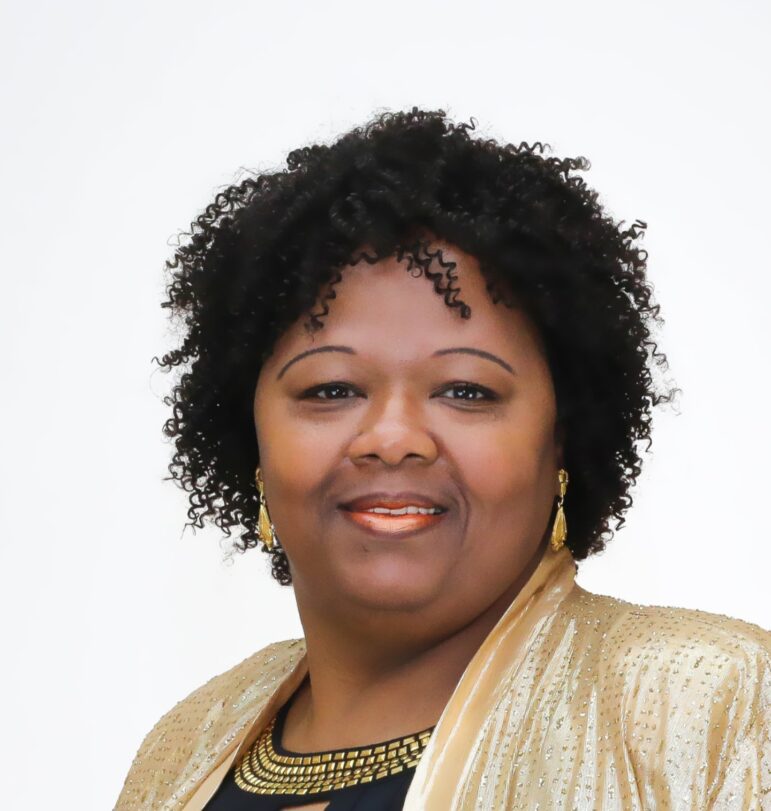‘Mississippi Five’ parole issues highlight the toll of ‘graying’ in Gulf South prisons
(left to right, top to bottom) A collage of illustrations of the Mississippi Five — Loretta Pierre, Anita Krecic, Linda Ross, Lisa Crevitt and Evelyn Smith. The women were sentenced to life with the possibility of parole in the late 1980s and early 1990s. Amid a recent push by advocates for the women's release, their experience illustrates how prison populations are "graying," with more people living into their 50s and beyond in lockups.
The women some call the “Mississippi Five” have each lived behind prison walls for more than 30 years.
The Sept. 11, 2001 attacks, wars in Iraq and Afghanistan, at least five presidential administrations, three impeachments, hurricanes too numerous to name and a global public health emergency have come and gone while they’ve been incarcerated.
But their recorded writings — captured by organizers, read aloud by the women over tinny prison phones — show the deeper, personal impact of that loss of time.
“The son I was pregnant with in 1985 is now 38 years old, with three children of his own,” Loretta Pierre, who was pregnant when she was charged in a homicide case, said in a recording.
“I have grandchildren that I have never seen in person,” she added.
Joining Pierre in the group are Lisa Crevitt, Evelyn Smith, Linda Ross and Anita Krecic. They are largely older adults, ranging from 60 to 82 years old. All five women are serving life sentences for homicide and other convictions, Mississippi Department of Corrections records show.
Amid a recent push by advocates for the women’s release, their experience illustrates how prison populations are “graying,” with more people living into their 50s and beyond in lockups.

Some experts say this strains prison systems, which are then tasked with providing care for serious and chronic conditions and disabilities, while not accounting for low recidivism rates among elderly people who are released.
“We’re keeping people in prison long past the point where they are a danger to public safety,” said Ashley Nellis, a researcher who studies life sentences and has written about aging life prisoner populations for The Sentencing Project.
After incarceration that adds up to more than 170 years behind bars, advocates like Pauline Rogers say these women have been punished enough. They’ve all applied for parole, and have been “set off” (or denied), in some cases multiple times.
Rogers is a founder and director of The Rech Foundation, which serves formerly incarcerated people. She once was incarcerated with one of the Mississippi Five and has kept in touch with all of them over the years.
She describes having a good understanding of their conduct, due to her own experiences on the inside. All are “remorseful, repentant,” she said.
“They’re changed women,” Rogers said. “They are not the same women who made the worst mistake, but they are still paying for it.“
Emails to Mississippi’s parole board asking to share details on why the women’s parole applications were denied weren’t immediately returned. A policy and procedure manual shows that many of the parole board’s files are classed as confidential.
A growing issue
Lawmakers, policy experts and public health advocates have grown increasingly concerned about aging U.S. prison populations, pointing to a group of frail people with increasingly complex and expensive medical and social needs.
The problem is starkly apparent in the Gulf South. Online data from Louisiana’s prison system shows more than 7,000 people in the state’s custody are 50 years old or older. Alabama has about that many people in prisons who are 51 years old or older, monthly reports show.
In Mississippi, more than 40% of people now serving life-without-parole sentences are over 50, research from The Sentencing Project found. The Mississippi Five aren’t included in this count, because they aren’t sentenced to life-without-parole terms.
Nellis said people also physically age faster in prison, attributed to exposure to noise, violence, trauma and limited access to routine health care. A 50-year-old person in prison is often considered elderly, while that might not be true for someone on the outside.
States have tried different remedies to address this problem, including the enacting of “geriatric parole” rules, which aim to release people who have reached an advanced age under certain conditions. At least 24 states have such a rule, according to an analysis by the National Conference of State Legislatures. Research from the advocacy group FAMM shows this includes Southern states such as South Carolina, Tennessee and even Mississippi.
However, the women’s cases don’t meet the conditions for that for a few different reasons, as spelled out by language in Mississippi’s current parole statute.
Experts, including those writing for the U.S. Sentencing Commission, also highlight what they say are lower rates of older people committing new crimes after being released from long prison sentences, suggesting a low risk to public safety.
Nellis says people serving life terms are often held in medium-to-maximum security facilities, which are expensive to operate, in addition to a burgeoning tab for housing aging people.
“The costs of keeping them incarcerated far outweigh what you could benefit from by releasing them,” Nellis said.
Support and opposition for release
A few advocates in Mississippi are campaigning on the women’s behalf. That includes the education and organizing group Study and Struggle, which Rogers is also affiliated with, which has documented their stories.
Not everyone supports the release push, though. The Mississippi State Troopers Association has opposed Krecic’s parole applications due to her connection to the 1980s shooting death of one of their officers, per the Associated Press.
Crevitt’s ex-husband, who has served as a judge over a civil small-claims court, spoke to TheVicksburg Post to oppose her parole application, and urged people on social media to do the same, reports said. Crevitt’s conviction is for the death of their young child in the 1980s, according to reports.
But Rogers said the women have “exhausted” coursework to improve themselves and have “probably repeated” educational certificate programs. She’s frustrated with the parole process and believes the women are prime candidates for release.
She’s asking people to write letters, make phone calls and find other ways to influence the board on behalf of the Mississippi Five.
“All of us want mercy and grace,” she said.
Their cases come when some have criticized Mississippi’s parole board over its release rates. Reports from a state task force show a dip in the state’s parole rates, though those numbers have recently bounced back a bit.
Meanwhile, for the five women, time continues to pass.
“It’s very disheartening to sit in prison your whole adult life, reform yourself, do the right thing, getting no reprimands or negative reports, and yet continuously receive setoffs from the parole board,” Crevitt said in her recorded writings.
In her recording, Smith said she has faltering health. With a little laugh, she notes that arthritis “can wear you out.”
“I’m 82 and the last time I went up for parole was in ’22, and they told me to come back when I was 85,” she said.
Some of the women expect to have parole hearings next year.
This story was produced by the Gulf States Newsroom, a collaboration between Mississippi Public Broadcasting, WBHM in Alabama, WWNO and WRKF in Louisiana and NPR.
Bill making the Public Service Commission an appointed board is dead for the session
Usually when discussing legislative action, the focus is on what's moving forward. But plenty of bills in a legislature stall or even die. Leaders in the Alabama legislature say a bill involving the Public Service Commission is dead for the session. We get details on that from Todd Stacy, host of Capitol Journal on Alabama Public Television.
My doctor keeps focusing on my weight. What other health metrics matter more?
Our Real Talk with a Doc columnist explains how to push back if your doctor's obsessed with weight loss. And what other health metrics matter more instead.
Baz Luhrmann will make you fall in love with Elvis Presley
The new movie is made up of footage originally shot in the early 1970s, which Luhrmann found in storage in a Kansas salt mine.
Forget the State of the Union. What’s the state of your quiz score?
What's the state of your union, quiz-wise? Find out!
A team of midlife cheerleaders in Ukraine refuses to let war defeat them
Ukrainian women in their 50s and 60s say they've embraced cheerleading as a way to cope with the extreme stress and anxiety of four years of Russia's full-scale invasion.
As the U.S. celebrates its 250th birthday, many Latinos question whether they belong
Many U.S.-born Latinos feel afraid and anxious amid the political rhetoric. Still, others wouldn't miss celebrating their country








